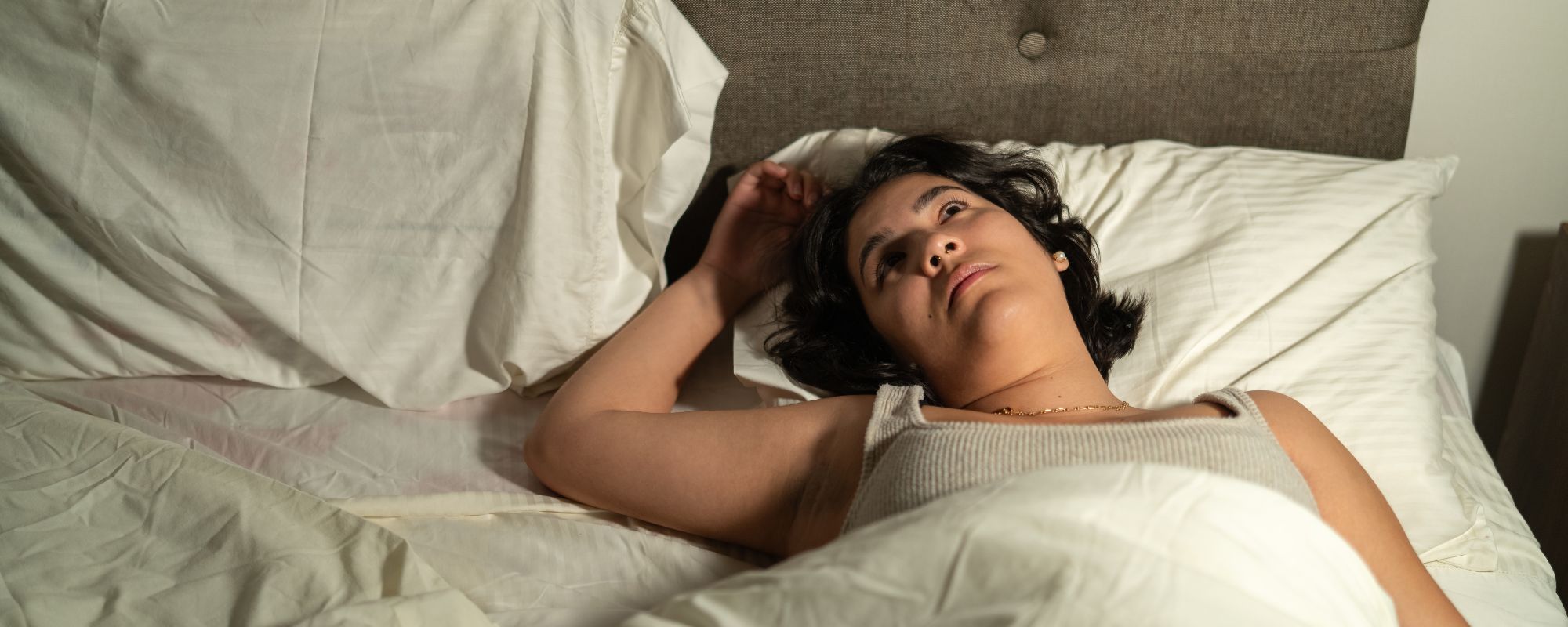Outpatient mental health care is a life-changing rehabilitation program for mental illness, addiction, and co-occurring disorders. Further, outpatient care is an important stage of recovery that teaches valuable skills. Through comprehensive treatment that targets the mind, body, and spirit, individuals experience lasting healing. There are many benefits of outpatient treatment, regardless of the struggles the patient needs help with. What is outpatient care for mental health? Let’s discuss what outpatient care means, what levels it includes, and what issues it can treat. Afterward, you’ll be informed about taking the next step for you or your loved one to enter treatment.
What Is Outpatient Mental Health Care?
Outpatient care is an essential stage of treatment for both mental illness and addiction. We divide our recovery programming into different levels of care that represent where the individual is on their healing journey. Outpatient care is one of the later steps in treatment following inpatient treatment. To elaborate, inpatient treatment is the first stage after detoxification. Patients live in-center with 24/7 support from staff, including doctors, therapists, and case managers. Inpatient treatment begins to teach patients how to overcome the struggles they bring with them into rehab. During inpatient care, the emphasis is on starting to find healing and hope in treatment.
Thus, by the time they enter outpatient care, patients have gained a basic comfort in treatment. For example, they have participated in group and individual therapy sessions and learned how to open up about their feelings. They have experimented with traditional behavioral therapy as well as holistic therapy activities to target whole-body healing. Also, they have begun to learn valuable skills for coping with their issues on their own.
Expands on Inpatient Treatment for Mental Health
Outpatient mental health treatment furthers all of the teachings they’ve engaged with during inpatient rehab. Notably, outpatient treatment is more flexible because patients return home but commute to the center for therapy sessions. During outpatient treatment, individuals are ready to gain more independence in their recovery. As such, the emphasis is on continuing to unpack and heal from their pain, learning coping skills, and preparing for the future. Some of the focuses of outpatient treatment for mental health include:
- Goal setting
- Trigger management
- Coping mechanisms
- Emotional regulation
- Future planning
- Sobriety maintenance
- Self-sufficiency
- Financial literacy
- Trauma-informed care
- Job and resume support
Because it prepares individuals to be ready to leave treatment and return to society, outpatient mental health care is a pivotal stage. Not only does it prepare them mentally and emotionally, but it also supports them in considering concrete details.
Get confidential help from our addiction and mental health treatment facilities located across the United States. Call to join one of our quality programs today!
Speak With Our Admissions TeamWhat Mental Health Disorders Can Outpatient Rehab Treat?
Outpatient mental health care is a program for people with all kinds of mental health struggles. Regardless of their diagnosis, there is support for them in rehabilitation. We have outpatient anxiety treatment, outpatient depression treatment, outpatient trauma treatment, and additional programming.
Some of the mental illnesses we treat include:
- Generalized anxiety
- Panic disorder
- Social anxiety
- Phobias
- Major depressive disorder
- Postnatal depression
- Premenstrual depressive disorder
- Bipolar disorder
- Post-traumatic stress disorder
- Obsessive-compulsive disorder
- Borderline personality disorder
- Narcissistic personality disorder
- Antisocial personality disorder
- Avoidant personality disorder
- Schizophrenia
- Substance use disorder
- Trauma
We offer comprehensive care that addresses all types of mental disorders and their negative effect on mental health. Through a combination of evidential behavioral therapy and holistic therapy programming, we help patients discover new insights about themselves and their diagnosis. Additionally, individuals learn how to manage their symptoms by working with licensed counselors who walk with them throughout their time in the center.
What Are the Different Types of Mental Health Outpatient Treatment?
As part of outpatient treatment, we offer three levels of care within outpatient rehab: partial hospitalization, intensive outpatient, and traditional outpatient. Patients can move between each level or enter the one that is right for them.
Partial hospitalization programming (PHP) is a stage of outpatient care similar to residential inpatient care but with more flexibility. It is for individuals who require substantial assistance but can’t live in the center. They attend sessions during the day and return home. Sometimes, they enter PHP instead of inpatient because it offers an accelerated timeline or because they have obligations at home. PHP can also be a transitional stage between inpatient and outpatient.
Intensive outpatient programming (IOP) is another flexible level of care where individuals attend sessions during the day but live at home. IOP is for those who have completed much of the inner healing work and are ready for more independence in treatment. Yet, IOP is more structured than traditional outpatient. Both IOP and PHP are in between steps for additional assistance or a flexible alternative to the traditional rehab route.
Traditional outpatient treatment is for individuals who have completed inpatient treatment, PHP, or IOP and are ready for more self-sufficiency. For this reason, emphasis is placed on coping skills and future planning.
Outpatient Rehab Therapies
Our commitment to comprehensive treatment includes a combination of traditional and holistic healing methods. We offer the full continuum of care. As such, all patients engage with traditional and holistic therapies for a total wellness approach to rehab. We use research-based behavioral therapy along with experiential activities.
To elaborate, some of our traditional psychotherapies are:
- Individual therapy
- Group therapy
- Cognitive behavioral therapy (CBT)
- Dialect behavioral therapy (DBT)
- Acceptance and commitment therapy (ACT)
- Eye movement desensitization and reprocessing therapy (EMDR)
Some of the holistic treatments we offer at our various rehab facilities are:
- Neurofeedback
- Art therapy
- Music therapy
- Yoga
- Tai chi
- Meditation
- Outdoor activity therapy
- Equine-assisted therapy
- Sound therapy
- Massage therapy
- Breathwork
- Nutrition counseling
All patients at our centers participate in a schedule that includes psychotherapy and experiential activities. We encourage each individual to try different options to see what prompts healing. During all therapies, we have licensed and knowledgeable therapists and counselors present to lead sessions and encourage self-reflection.
Looking for quality treatment for substance abuse and mental health that’s also affordable? Aliya Health Group's treatment facilities accept most major insurance providers. Get a free insurance benefits check now!
Check Your CoverageHow Much Does Outpatient Mental Health Treatment Cost?
The exact cost of outpatient mental health care depends on a variety of factors. Thus, it differs from person to person. For example, individual factors that contribute to the price of treatment include:
- Length of treatment
- Levels of care
- Whether a person enters medication-assisted treatment (MAT)
- Treatment Facility
- Insurance
A large element of how much treatment costs is your insurance plan. If you have insurance, your specific coverage plan will outline what services are covered and to what extent. You may have co-pays and deductibles that also determine what you pay out-of-pocket versus what is covered.
Fortunately, outpatient treatment tends to be more affordable than inpatient treatment. Sometimes, insurance policies treat it similarly to attending a visit with a care provider. Because outpatient treatment doesn’t include overnight stays, much of the costs can be reduced; under the Affordable Care Act (ACA), mental health treatment must be covered by insurance providers. Thus, your insurance will contribute to at least part of your costs. Your insurance for outpatient mental health treatment may even cover the whole cost.
Understandably, you probably don’t know all the ins and outs of your policy. Our intake team would be happy to call your provider on your behalf and gather all the information. Then, they will schedule a meeting with you to go over your coverage and discuss your treatment options. Based on your insurance coverage and the remaining costs, you can make informed decisions about your health.
Trust Aliya for Outpatient Mental Health Treatment
At our Aliya Health Group mental health treatment centers, we provide the full continuum of care for mental wellness. Your total-body healing is our goal in treatment, which informs the levels of care and therapy approaches we offer. Outpatient mental health care is the best way to reset your wellness and get yourself back on track.
If you’re ready to leave your mental illness symptoms in the past, reach out today. You can reserve a spot in one of our outpatient behavioral health care facilities.







